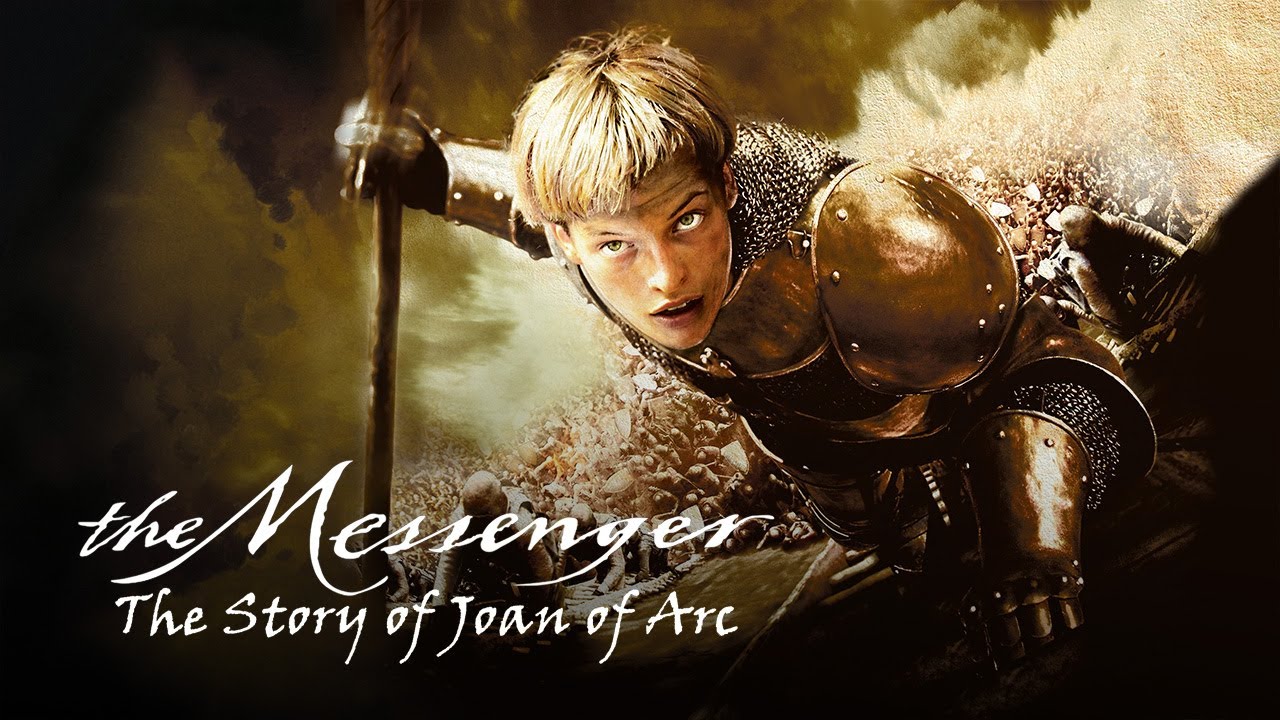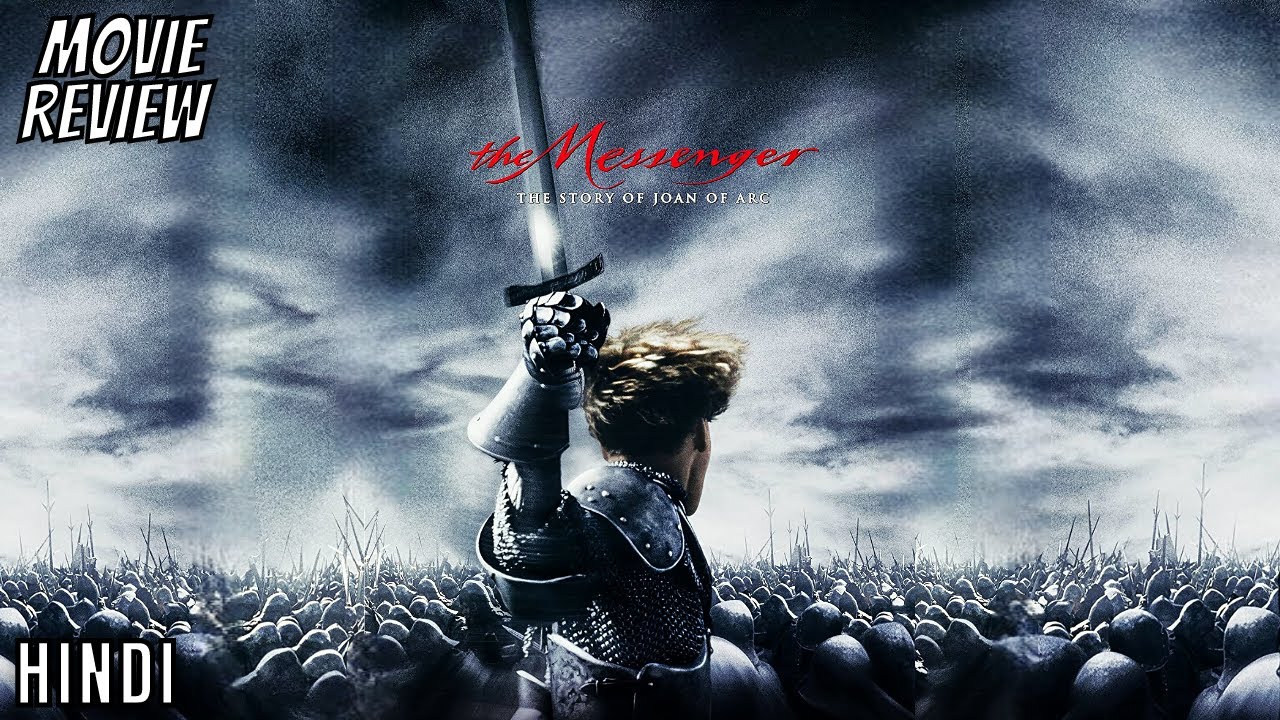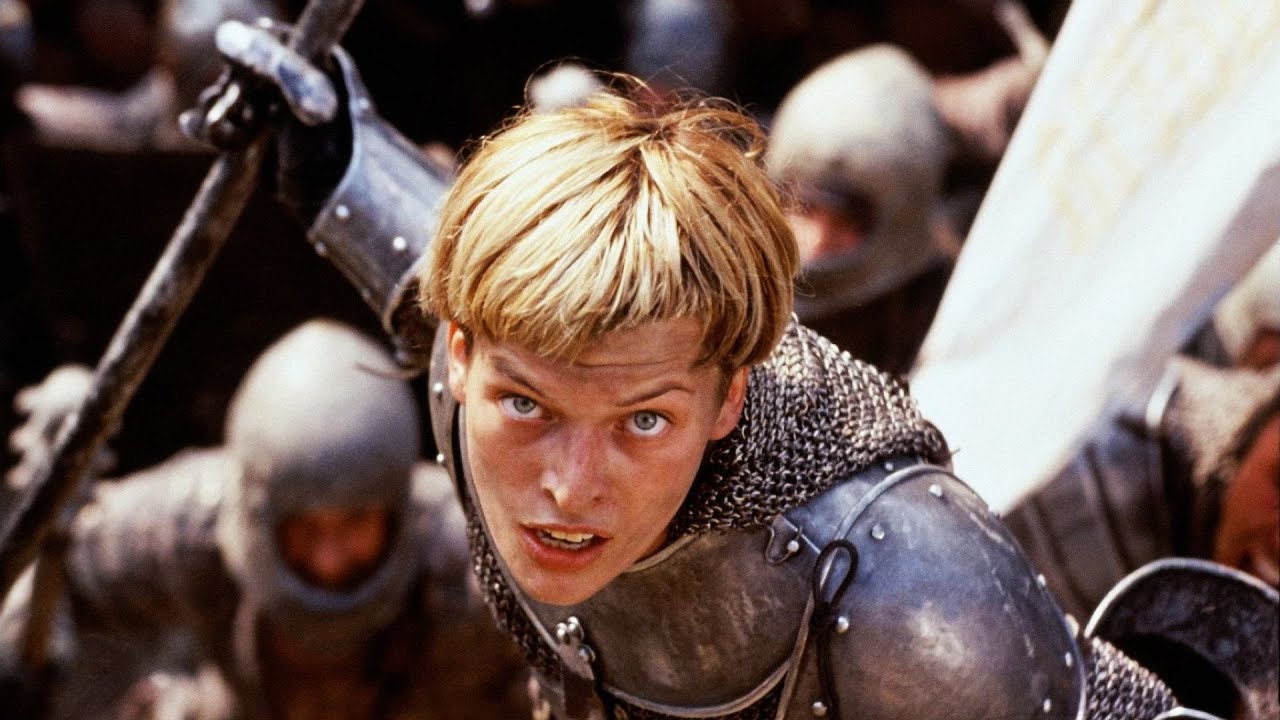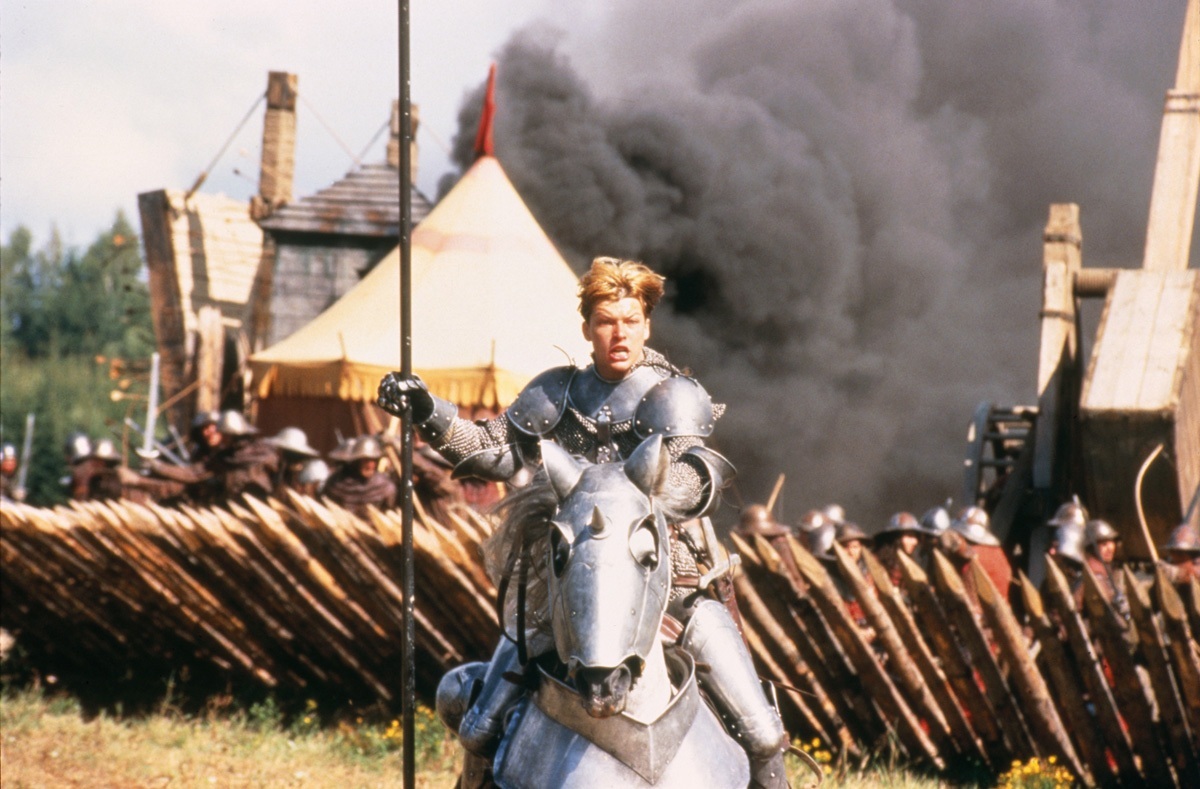🎬 The Messenger: The Story of Joan of Arc (1999): The Story of Joan of Arc – A Fierce Vision of Faith and Fury

The Messenger: The Story of Joan of Arc (1999), directed by Luc Besson, is an intense and visually striking retelling of the legendary tale of Joan of Arc, a young peasant girl whose divine visions led her to become a key figure in France’s fight against English occupation during the Hundred Years’ War. Starring Milla Jovovich in the title role, this film offers a powerful, albeit unconventional, portrayal of Joan as both a spiritual warrior and a flawed, passionate human being. With its epic battle sequences, intense performances, and psychological depth, The Messenger brings a raw, visceral energy to the age-old legend.
Plot Overview:
The film follows the life of Joan of Arc (Milla Jovovich), beginning with her childhood in Domrémy, where she experiences her first visions of divine guidance. Joan believes she is chosen by God to save France from the English, who have invaded and occupied much of the country. These visions fuel her unshakable faith and drive her to take extraordinary action.
At the age of 17, Joan convinces Charles VII (John Malkovich), the Dauphin of France, to allow her to lead an army to lift the siege of Orléans. Despite her lack of military experience, Joan’s conviction and divine inspiration rally the French forces, and she becomes a symbol of hope for the people of France. Her presence on the battlefield turns the tide of war, and she leads the French to a series of victories.
However, Joan’s rise is not without controversy. Her fierce faith, unorthodox methods, and growing influence draw the ire of both political and religious leaders. As she continues her crusade, Joan begins to question her own visions and motivations. Betrayed and captured by the English, she is put on trial for heresy. The film explores her psychological torment as she faces her accusers and grapples with her faith, ultimately leading to her martyrdom by burning at the stake.

Character Development and Themes:
Milla Jovovich’s portrayal of Joan of Arc is fearless and intense, capturing both the strength and fragility of a young woman consumed by her faith. Jovovich imbues Joan with a wild, untamed energy, portraying her as someone driven by an overwhelming sense of divine purpose, yet struggling with doubt and fear. Her performance emphasizes Joan’s humanity, making her a more relatable and complex figure than the purely saintly depictions seen in previous films.
Joan’s character arc is one of unwavering belief that is gradually tested by the harsh realities of war and politics. Her divine visions and sense of destiny set her on an extraordinary path, but as the film progresses, Joan begins to question whether her actions are truly guided by God or driven by personal ambition. This psychological conflict adds depth to her character and makes her journey a more nuanced exploration of faith, power, and sacrifice.
John Malkovich’s portrayal of Charles VII is equally compelling, presenting the Dauphin as a cautious and self-serving leader who is both intrigued and threatened by Joan’s growing influence. Malkovich plays Charles with a subtle mix of vulnerability and manipulation, making it clear that while he recognizes Joan’s value as a symbol, he is also willing to sacrifice her when it serves his political goals.
Dustin Hoffman appears as a mysterious figure representing Joan’s conscience, engaging her in philosophical debates that challenge her certainty about her divine mission. His role adds a psychological layer to the film, as Joan confronts her inner doubts and wrestles with the idea of whether she has truly been chosen by God or if she has been led astray by her own desires.
The film’s central themes revolve around faith, doubt, and the burden of leadership. Joan’s unwavering belief in her divine mission propels her to extraordinary heights, but it also isolates her from those around her, as her fervor becomes increasingly difficult for others to understand. The film explores the fine line between faith and fanaticism, as Joan’s conviction often leads her to make reckless decisions that endanger both herself and her followers.

Another key theme is the idea of sacrifice and martyrdom. Joan is portrayed as a Christ-like figure, willing to suffer and die for the cause she believes in. Her journey is one of self-sacrifice, as she puts her faith above her personal safety and ultimately accepts her fate as a martyr. The film also examines the political and religious forces that exploit Joan’s faith for their own gain, leading to her betrayal and tragic end.
Action and Visual Style:
The Messenger is a visually stunning film, with Luc Besson’s direction bringing a gritty, visceral energy to both the battle scenes and the more intimate character moments. The film’s depiction of medieval warfare is brutal and chaotic, with the camera placing the viewer right in the heart of the action. The battle sequences are intense, featuring sweeping shots of clashing armies, muddy battlefields, and blood-soaked combat. These scenes are choreographed to emphasize the raw violence of war, contrasting sharply with Joan’s idealistic vision of her divine mission.
The film’s visual style is also notable for its use of stark contrasts between light and shadow, particularly in the scenes depicting Joan’s visions. Besson uses ethereal, dreamlike imagery to convey Joan’s divine experiences, creating a visual language that distinguishes her inner world from the harsh realities of the battlefield. The use of color and lighting plays a crucial role in depicting Joan’s psychological journey, with darker tones reflecting her growing doubts and inner turmoil.
The score by Eric Serra complements the film’s epic scope, with sweeping, dramatic compositions that heighten the emotional intensity of both the battle sequences and Joan’s personal struggles. The music reinforces the film’s sense of grandeur and tragedy, adding an operatic quality to Joan’s story.
Criticism:
While The Messenger is praised for its bold visuals and Milla Jovovich’s committed performance, some critics have noted that the film’s narrative can feel uneven. The blending of historical epic with psychological drama creates a tonal shift that may be jarring for some viewers. The film’s attempts to delve into Joan’s psyche, particularly through the character played by Dustin Hoffman, are ambitious but occasionally detract from the film’s pacing, leading to moments that feel disjointed.
Additionally, some historical purists may find fault with the film’s liberties in interpreting Joan’s story. While the film captures the essence of Joan’s journey, it takes creative liberties with certain aspects of her life and the surrounding events, which may not align with more traditional accounts of her legend.

Final Thoughts:
The Messenger: The Story of Joan of Arc is a bold, visually striking portrayal of one of history’s most iconic figures. Milla Jovovich’s intense performance, combined with Luc Besson’s dynamic direction, brings a fresh and fierce energy to the tale of Joan of Arc. The film’s exploration of faith, doubt, and the complex psychology of a young woman burdened with a divine mission adds depth to the familiar story, making it both an epic historical drama and a psychological study of belief and leadership.
For those who appreciate historical epics with a psychological twist, The Messenger offers a compelling and thought-provoking interpretation of Joan of Arc’s life and legacy. Its blend of visceral action and philosophical introspection makes it a unique entry in the canon of films about this legendary figure.
Movie Information:
- Title: The Messenger: The Story of Joan of Arc
- Director: Luc Besson
- Starring: Milla Jovovich, John Malkovich, Faye Dunaway, Dustin Hoffman, Vincent Cassel
- Genre: Historical Drama, War
- Release Date: November 12, 1999
- Running Time: 148 minutes
- Rating: R
- Plot Summary: Joan of Arc, a peasant girl driven by divine visions, leads the French army in their battle against English forces during the Hundred Years’ War. Her faith and determination make her a hero, but her unorthodox methods and growing influence lead to her betrayal, trial for heresy, and ultimate martyrdom.
SUGGESTED VIDEO FOR YOU:
[Movie Review] The Beekeeper 2 (2025): A Secret Agent’s Battle Against a Fraud Syndicate
[Movie Review] The Terrifying Birth of an Alien-Human Hybrid: A Sci-Fi Horror Unleashed!











